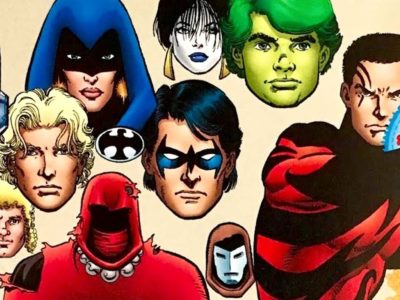
[ad_1]
Superman ’78 stands out with a back-to-basics approach to a sincere Man of Steel who couldn’t fit in the morally complex DC Extended Universe.
WARNING: The following contains spoilers for Superman ’78, on sale now from DC Comics.
There are few characters as iconic as Superman, and 1978’s Superman: The Movie still stands as one of his most seminal portrayals yet. Since Christopher Reeve’s Superman took flight, the character endured many updates and transformations over the subsequent decades. By the time Henry Cavill Superman took flight in 2013’s Man of Steel, the DC Extended Universe’s version of the hero was a far more violent, morally conflicted character than the bright hero of yesteryear.
However, the comic book Superman ’78 revives the Christopher Reeve version of Superman and offers a glimpse of just what was lost in all the intervening years. By tapping into the core values of the character, this series has underscored what truly makes this version of Superman exceptional.
Perhaps the greatest charm of Superman ’78 comes in recapturing the magic the original films already had. Writer Robert Venditti, Wilfredo Torres, Jordie Belaire and Dave Lanphear all work to produce a story that transports the reader back into the late ’70s world of the franchise. There, Lois Lane is a fast-talking reporter who is tugging around the naïve but slyly heroic Clark Kent against the backdrop of villains like Lex Luthor, who are as much interested in bragging about their criminal prowess than actually taking over the world. This Superman has an easy confidence, a gentle touch in and stands up for the ideals that he believes in with certainty,
This all makes him a far cry from the Superman of the DCEU. Man of Steel and Batman v. Superman: Dawn of Justice both conveyed director Zack Snyder’s take on the character, who was quicker to brood than smile and inhabited a dark and violent world of constant moral conflict. While Snyder’s Superman does pay lip service to his symbolism and status as an ethical paragon, he enacts it more through heavy-handed iconography and prolonged philosophical discussion. In sharp contrast, Superman ’78 makes standing up for truth and justice an uncomplicated decision that the hero embodies in his casual posture and corny banter as much as anything else.
A scene in Superman ’78 #2 proves an apt point for comparison. There, Lex Luthor is made the butt of a joke when he boasts of his superlative criminal genius at a job interview where he is merely interviewing to work in a cafeteria. He goes home to a paltry apartment, takes off his wig, and comes face to face with Superman. Superman reminds him that Luthor’s parole board asked that he keep tabs on Luthor, and he has a piece of Brainiac that humbly asks Luthor’s help in examining. This is a playful back-and-forth between a hero and villain that speaks to the hokier aspects of their reality while still communicating an important moral message: no one, even Lex Luthor is beyond humor or redemption.
By comparison, the interplay between Superman and Luthor in Batman v. Superman has none of the character, or fun, or impact in portraying its moral message. There, Luthor delivers prolonged monologues waxing philosophical about ideas of good and evil while enacting a convoluted plot that ultimately imperils both Superman’s life and the lives of his loved ones. His most ridiculous aspects are played so straight the audience is clearly not meant to laugh at him even as much as they might be prone to, and for all the gestures toward realism and moral complexity, the result is every bit as cartoonish as Gene Hackman’s performance in 1978.
If Superman is truly meant to be a symbol of hope, then it is the spit-curled hero of Superman ’78 that truly embodies that symbolism. The fate of the character on the silver screen remains a mystery as studios and creators try to work out the future of the DCEU. However, Superman ’78 shows just how much there is worth remembering there. If any future film installments could capture that magic as effectively as these comics do, the best Superman films yet could be just out on the horizon, ready to give audiences the wondrous optimism that allows them to believe a man can fly.
About The Author
[ad_2]





